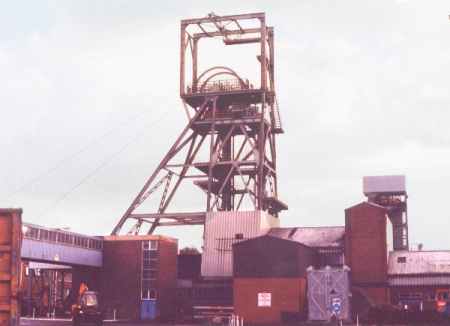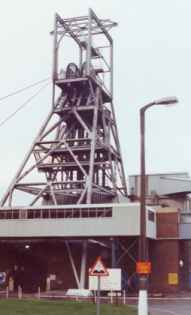 |
Daw Mill
Background
Originally, Daw Mill was simply a ventilation shaft for the existing works at Dexter Colliery. Situated in Warwickshire, to the north-west of Coventry, the shaft was later modified for coal winding.
The first coal was brought up the shaft in 1965, and three years later in 1968, a second shaft was added.
In 1982 the decision to commission a surface drift was taken.
The Present
Seven seams merge together to form the Warwickshire Thick, which is the only seam mined at Daw Mill. These seams lie at depths of 500m - 1000m and some have been worked independently by other mines
 |
Into the Future...
Production in the southern reserve block is expected to commence in 2001. Extraction will be made through a new longwall panel, which be the longest longwall ever worked at the colliery. The panel will work in a section measuring up to 5.0m, which will be the largest section ever worked in this country.
Significant capital investment will be required to work the southern unlicensed area, with the most significant constraint being the plan to extract coal from beneath the M6 Motorway. The subject of compensation to the Highways department is presently under discussion.
 |
Hill Top - Kellingley - Longannet - Monument - Maltby -Phoenix and Hopewell - Prince of Wales - Rossington
The Free Miners - The Selby Complex - Thoresby -Thorne - Tower - Welbeck - The Nottingham Coalfield
Mining 2000 Conclusions